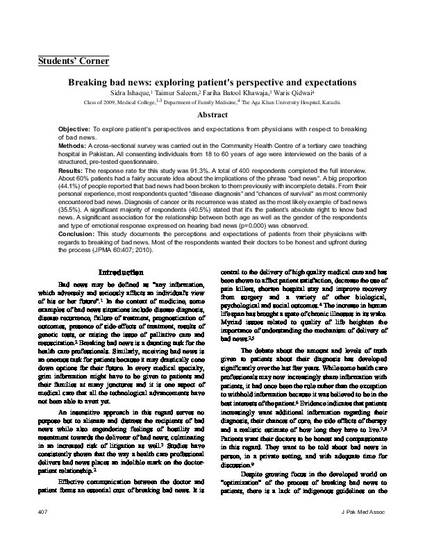
OBJECTIVE: To explore patient's perspectives and expectations from physicians with respect to breaking of bad news.
METHODS: A cross-sectional survey was carried out in the Community Health Centre of a tertiary care teaching hospital in Pakistan. All consenting individuals from 18 to 60 years of age were interviewed on the basis of a structured, pre-tested questionnaire.
RESULTS: The response rate for this study was 91.3%. A total of 400 respondents completed the full interview. About 60% patients had a fairly accurate idea about the implications of the phrase "bad news". A big proportion (44.1%) of people reported that bad news had been broken to them previously with incomplete details. From their personal experience, most respondents quoted "disease diagnosis" and "chances of survival" as most commonly encountered bad news. Diagnosis of cancer or its recurrence was stated as the most likely example of bad news (35.5%). A significant majority of respondents (40.5%) stated that it's the patient's absolute right to know bad news. A significant association for the relationship between both age as well as the gender of the respondents and type of emotional response expressed on hearing bad news (p = 0.000) was observed.
CONCLUSION: This study documents the perceptions and expectations of patients from their physicians with regards to breaking of bad news. Most of the respondents wanted their doctors to be honest and upfront during the process.
Available at: http://works.bepress.com/waris_qidwai/19/
